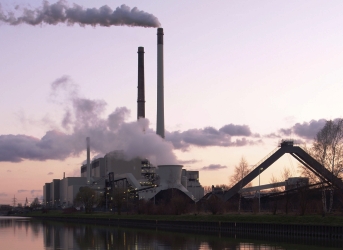With domestic oil production soaring, and petroleum and coal sector profits rising at a rapid clip, now seems the right time to cut back on tax expenditures related to oil extraction and processing.

Figure 1: US oil field production in thousands of barrels/day (blue, left axis), and profits in the petroleum and coal sector according to NIPA, in billions SAAR (red, right axis). Source: Energy Information Administration, BEA.
The Administration has proposed elimination of several tax expenditures. According to OMB, this would yield ten year savings equal to $41.4 billion.

Table 5-1 from Aldy (2013).
In the recent debate over the sequester, other provisions were suggested, including an end to an exemption for the tar sands industry that excludes it from paying an 8-cent-per-barrel fee that supports an oil spill fund. [1] The Congressional Research Service has discussed the elimination of the provisions in the table above.
On the one hand, the tax changes proposed ... would increase tax collections from the oil and natural gas industries and may have the effect of decreasing exploration, development, and production, while increasing consumer prices and possibly increasing the nation’s dependence on foreign oil. These same proposals, from an alternate point of view, might be considered to be the elimination of tax preferences that have favored the oil and natural gas industries over other energy sources and made oil and natural gas products artificially inexpensive, with consumer cost held below the true cost of consumption when external costs associated with environmental costs and energy dependence, among others, are included.
I believe the negative impact on output is highly overstated. From Aldy (2013):
Proponents of fossil fuel subsidies claim that these subsidies support American energy independence. This argument does not appear to be applicable to coal, as the United States has been largely self-sufficient in coal over its history, with modest imports and exports in recent years. Moreover, it is quite unlikely that the current oil and gas subsidies explain this bullish outlook for domestic oil and gas production, since most of the prominent subsidies—such as intangible drilling costs expensing and percentage depletion—have been in the tax code over the 1970–2009 period that was characterized by a nearly 50 percent decline in U.S. oil production.
More important, the economic analyses of the impact of oil and gas subsidies show very little response in domestic production to these tax preferences. In one analysis of subsidy elimination, the estimated reduction in U.S. oil production would amount to about 26,000 barrels per day (Allaire and Brown 2009). This is quite modest considering the rapid growth in domestic oil production, which has grown, on average, each month by more than 30,000 barrels per day since January 2009. Thus, these tax subsidies do not meaningfully increase production, and as a result they do not stimulate job creation or lower U.S. oil, petroleum product, and natural gas prices. As largely inframarginal subsidies, they convey billions of dollars of benefits to the firms claiming them without an identifiable benefit for consumers or for the nation’s energy security.
By. Menzie Chinn
ADVERTISEMENT
Original Source: http://www.econbrowser.com/archives/2013/03/eliminating_ene.html


















